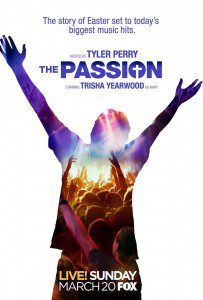 I’ve always enjoyed incorporating popular music into youth ministry. From middle school through high school, asking young people to share and talk about the music that moves them is an effective and eye-opening way to enter the lives of adolescents.
I’ve always enjoyed incorporating popular music into youth ministry. From middle school through high school, asking young people to share and talk about the music that moves them is an effective and eye-opening way to enter the lives of adolescents.
Several years ago, when the concept was still relatively novel, I put together three successful U2charist worship services, complete with a pretty authentic U2 cover band. I eventually realized, however, that these events mostly drew Gen Xers like myself. The young Millennials I was working with weren’t nearly as moved by U2 as I was.
One of my students was a huge Lady Gaga fan and kept asking to do a similar kind of service with her music. When I finally sat down and listened to a bunch of Lady Gaga songs, I realized that my student was right: these pop songs were rich with religious images and could in fact be incorporated into a legitimate worship service. So I collaborated with a group of students and developed a Lady Gaga worship experience we called “Electric Chapel”. It was timely, relevant, and deeply spiritual. More than ever, I was convinced that the gospel could be shared through pop music.
Riding the recent wave of televising live musical productions, I had high hopes for Fox’s The Passion. Telling the story of Jesus through pop music is a brilliant concept. Unfortunately, it didn’t live up to its potential.
I loved that the actors were dressed in contemporary clothes. I loved the gritty and symbolic New Orleans setting. I loved some of the song selections. But as a whole, I felt the experience fell flat.
I’ll start with a couple of theological criticisms. In general, I’m not a fan of passion plays that ignore the full context of Jesus’ life and ministry. Setting up Jesus as nothing but a sacrificial death misses the bigger picture of his message of God’s kingdom. I also didn’t care for his resurrection appearance taking place high above the people, more like the ascension. The resurrection appearances in the gospels are mostly among the people, which is significant.
But my biggest criticisms of the show have to do with storytelling. Compared to Fox’s well executed and well received Grease: Live, The Passion missed the mark in several ways. For one thing, there was way too much talking. Instead of staging it like a musical, it was more like a variety show narrated by Tyler Perry, who was never as convincing as a real preacher would have been. This—along with the oddly dissonant coverage of the cross procession—broke up the narrative flow and made the whole thing feel disjointed. Much of the music was indeed powerful, but it wasn’t surrounded by good storytelling. I would have preferred a continuous story in the form of the video segments of Jesus and his disciples, though even those were weakened by stilted Bible-speak taken from the Good News Translation instead of natural contemporary dialogue.
The music was hit or miss. “Bring Me to Life” is a powerfully spiritual song, but it didn’t fit with Judas before his betrayal of Jesus. By contrast, “Demons” was an effective duet between Judas and Jesus at the moment of his arrest in the garden. Pilate singing “We Don’t Need Another Hero” didn’t make sense—the song doesn’t really fit at all—but “Mad World” was a nice follow-up.
Trisha Yearwood offered many of the musical highlights as Mary. But, again, as storytelling it was flawed. She was always on stage dressed as an entertainer and Jesus was mostly on video dressed in street clothes, so they were completely disconnected. And as good as Yearwood was, I think the role of Mary would have been better served by Yolanda Adams, whose soulful opening and closing numbers felt like unrelated afterthoughts.
Judging by the number of audience members in tears, I imagine that The Passion felt more authentic and moving in person. Yet considering its platform and potential to communicate the gospel in fresh ways, it didn’t do justice to the source material.












